Russ Houk’s Wrestling Camp at Maple Lake stands as one of the most significant institutions in American wrestling history, pioneering the concept of intensive summer wrestling training that would be emulated by programs across the nation for decades. From its establishment in 1962 until Russ Houk’s passing in 1988, this Forksville, Pennsylvania facility served as the U.S. Olympic and Pan-American Games Training Camp, hosting legendary wrestlers who would shape the sport’s future while training thousands of youth wrestlers who carried its lessons throughout their lives.
Yet the story of Russ Houk’s Wrestling Camp represents more than training techniques and championship preparation. It embodies a philosophy of wrestling education that emphasized character development alongside technical excellence, created unprecedented opportunities for wrestlers at all skill levels to train together, and established standards for wrestling camp operations that continue influencing youth sports programs today. The camp’s legacy lives on in the careers of coaches it trained, the systems it pioneered, and the recognition programs that honor its contributions to wrestling.
This comprehensive exploration examines the history of Russ Houk’s Wrestling Camp, its impact on American wrestling, and how modern recognition systems help preserve and celebrate such legendary sports programs and the athletes they produced.
The impact of Russ Houk’s Wrestling Camp extended far beyond the summers spent at Maple Lake. The program fundamentally changed how wrestling training was approached in America, created pathways for Olympic success that defined an era, and established coaching philosophies that continue influencing the sport generations later.

Modern recognition systems help schools and programs preserve wrestling program history and honor legendary coaches like Russ Houk
Russ Houk: The Coach Who Built a Wrestling Empire
Understanding the camp requires understanding the man who created it—a coach whose vision transformed wrestling education in America.
Early Career and Coaching Foundations
Russ Houk’s path to wrestling prominence began with his own athletic versatility. A three-sport athlete at Lock Haven State, Houk graduated in 1952 before beginning his coaching career. His early positions demonstrated both his coaching ability and talent identification skills:
South Williamsport (2 years) Houk’s initial coaching position allowed him to develop fundamental coaching approaches while working with high school wrestlers.
Muncy High School At Muncy, Houk coached future NCAA Champion and Olympian Larry Lauchle, demonstrating his ability to develop elite talent even before arriving at the collegiate level.
Building Bloomsburg Wrestling Excellence
In 1957, Bloomsburg State College hired Russ Houk as head wrestling coach, beginning a tenure that would establish one of the nation’s premier small college wrestling programs.
Championship Success By his second year, the team posted a 9-1 record and won its first Pennsylvania State College Athletic Conference (PSCAC) championship, signaling the beginning of sustained excellence. Houk’s Bloomsburg teams ultimately achieved:
- 5 PSCAC titles
- 3 NAIA championships
- Career record of 142-34-4
- National recognition for small college wrestling excellence
Similar to how schools today recognize coaching achievements through comprehensive displays, Houk’s coaching accomplishments earned him induction into the Bloomsburg University Hall of Fame in 1982, according to Bloomsburg Athletics records.
Olympic Wrestling Leadership
Houk’s influence extended far beyond collegiate competition:
United States Olympic Wrestling Committee (1964-1976) As a committee member during wrestling’s golden era in American Olympic sports, Houk helped shape national team preparation and competition strategies.
Olympic Team Manager Houk served as manager for the U.S. freestyle wrestling team at both the 1972 Munich Olympics and 1976 Montreal Olympics, positions that placed him at the center of American wrestling during its most successful international period.
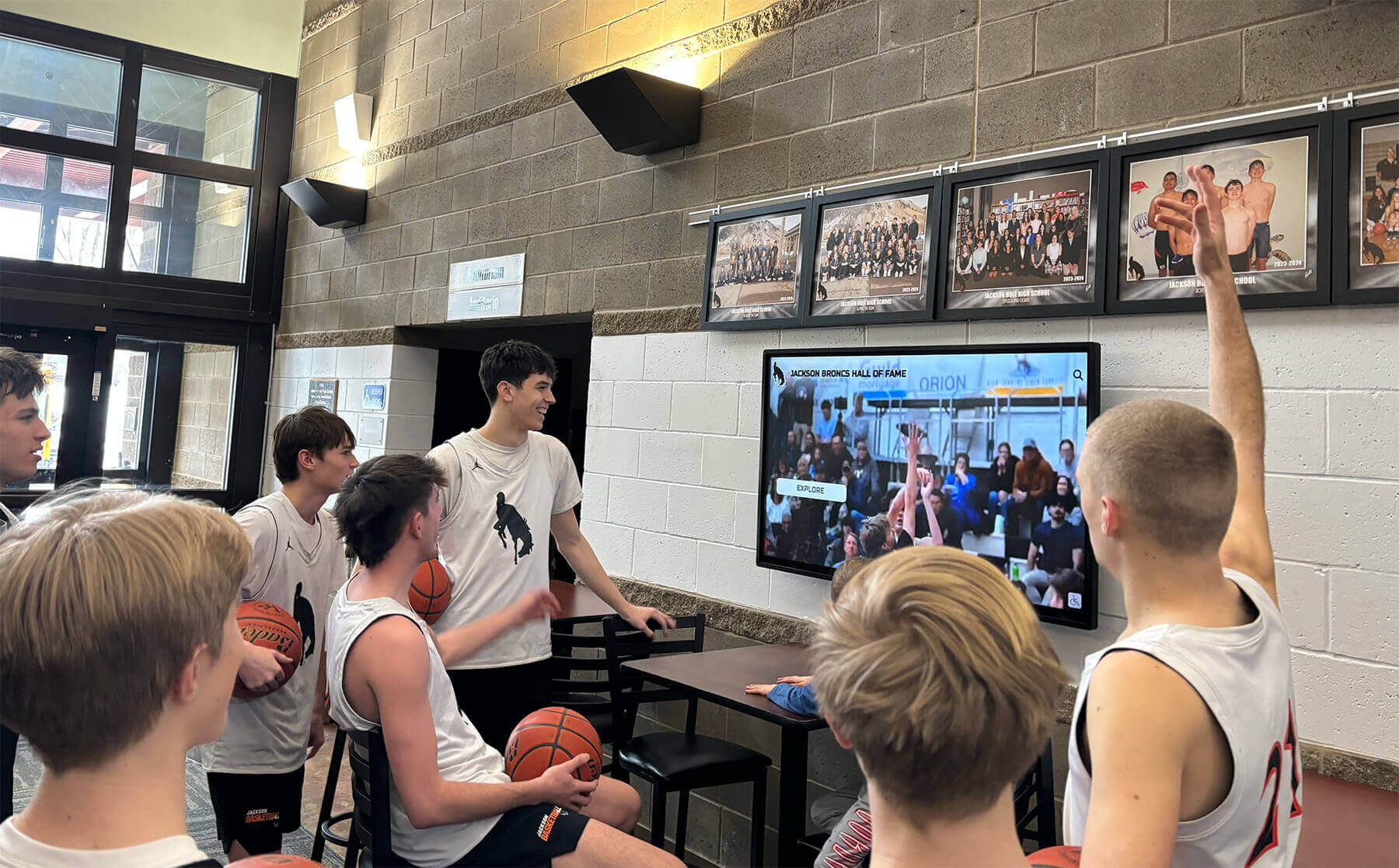
Interactive displays enable students to explore athletic program history and connect with legendary coaches and athletes
International Recognition According to the National Wrestling Hall of Fame, Houk became known both nationally and internationally for his involvement with wrestling, building relationships that would bring international wrestlers to his Maple Lake camp.
This combination of collegiate coaching success, Olympic involvement, and international reputation created the foundation from which Houk could build a wrestling camp with unprecedented reach and influence.
The Birth and Evolution of Maple Lake Wrestling Camp
The establishment of Russ Houk’s Wrestling Camp in 1962 represented an innovative approach to wrestling training that would reshape how the sport was taught in America.
Founding Vision and Initial Years (1962-1963)
Camp Maple Lake began in 1962 in Forksville, Pennsylvania, nestled in the state’s mountainous north-central region. The remote location offered focused training away from typical distractions, while the natural setting provided an environment where wrestlers could dedicate themselves entirely to improvement.
Initial Camp Philosophy From its inception, Houk designed the camp around several core principles:
- Comprehensive Skill Development: Training that addressed all aspects of wrestling, from fundamental technique to advanced strategy
- Mixed Skill Levels: Youth wrestlers training alongside college competitors and international athletes
- Character Emphasis: Wrestling education that stressed sportsmanship, work ethic, and personal integrity
- Intensive Training: Concentrated instruction impossible during regular season schedules
- Expert Instruction: Access to top coaches and elite wrestlers as instructors
This philosophy proved immediately attractive to wrestlers and families seeking serious training in an era when specialized wrestling camps were rare.
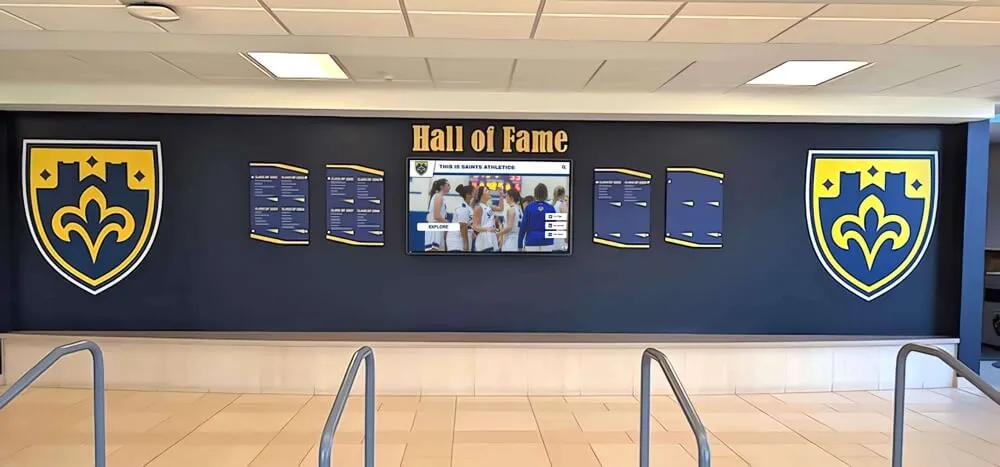
Comprehensive recognition systems preserve the history of legendary programs and the coaches who built them
Olympic Training Center Designation (1964-1973)
The camp’s reputation for excellence led to its most prestigious designation: official U.S. Olympic and Pan-American Games Training Camp from 1964 through 1973.
Olympic Training Center Status This designation meant that America’s Olympic wrestling team conducted training camps at Maple Lake as part of their preparation for international competition. The facility served as:
- Pre-Olympic training location for U.S. freestyle teams
- Pan-American Games team preparation site
- Training center for Canadian World and Olympic teams
- Testing ground for training methodologies later adopted by national programs
According to historical wrestling archives, the camp’s role as an Olympic training center during this decade coincided with some of American wrestling’s greatest international successes, including strong performances at the 1968 Mexico City, 1972 Munich, and 1976 Montreal Olympics.
International Training Programs Beyond U.S. teams, the camp hosted Canadian national teams, creating international training opportunities rare in that era. This international dimension exposed American wrestlers to different training styles and competitive approaches while building relationships that strengthened North American wrestling.
The Olympic training center designation validated Houk’s camp design and elevated its reputation, making attendance increasingly prestigious for serious wrestlers at all levels.
Camp Operations and Daily Structure
Understanding the camp’s impact requires examining how it actually operated during its peak years.
Training Schedule Typical camp days included:
- Morning technique sessions focusing on fundamental skills
- Afternoon live wrestling and situational training
- Evening strategy sessions and film study
- Physical conditioning throughout the day
- Individual coaching and technique refinement
- Competition preparation for advanced wrestlers
This intensive structure, supervised by elite coaches and featuring demonstrations by championship wrestlers, provided training unavailable through typical club or school programs.
Instructional Staff The camp’s coaching staff reflected Houk’s extensive wrestling network:
- College coaches from top wrestling programs
- Former Olympic and World Championship competitors
- Elite wrestlers training for upcoming international competitions
- Specialized instructors for specific positions and techniques
The rotating staff meant campers received diverse perspectives on wrestling excellence while learning from coaches they’d otherwise never access.
Similar to how modern athletic training programs emphasize comprehensive development, Houk’s camp balanced intensive technical training with appropriate rest, nutrition guidance, and injury prevention.
Legendary Wrestlers Who Trained at Maple Lake
The roster of wrestlers who trained at Russ Houk’s camp reads like a who’s who of American wrestling greatness during its golden era.
Olympic Champions and World Champions
Dan Gable Perhaps the most legendary name associated with the camp, Dan Gable—who would become arguably the greatest wrestler and wrestling coach in American history—trained at Maple Lake. Gable’s legendary work ethic and technical excellence were honed in part through Houk’s training systems. Gable would go on to win Olympic gold in 1972 without surrendering a single point, then coach the University of Iowa to 15 NCAA team titles.
Wayne Wells 1972 Olympic gold medalist Wayne Wells trained at the camp, developing the skills that would lead to his victory at the Munich Olympics in the 74 kg freestyle division.
The Peterson Brothers Both John and Ben Peterson, who would combine to win three Olympic medals (John: silver 1972, gold 1976; Ben: gold 1972), trained at Maple Lake. Their technical wrestling style and dedication to conditioning reflected lessons learned at Houk’s camp.
Stan Dziedzic The 1976 Olympic gold medalist (68 kg freestyle) trained at Maple Lake, contributing to the camp’s remarkable legacy of Olympic champions.
NCAA Champions and Elite Competitors
Chris Taylor The legendary heavyweight—whose combination of size, athleticism, and technique revolutionized heavyweight wrestling—trained at the camp. Taylor won NCAA titles at Iowa State and competed in the 1972 Olympics.
Rich Sanders Multiple-time NCAA finalist Sanders, known for his technical excellence and competitive intensity, refined his skills through Maple Lake training.
Wade Schalles One of college wrestling’s most prolific pinners, Schalles trained at the camp while developing the aggressive, pin-seeking style that would define his career.
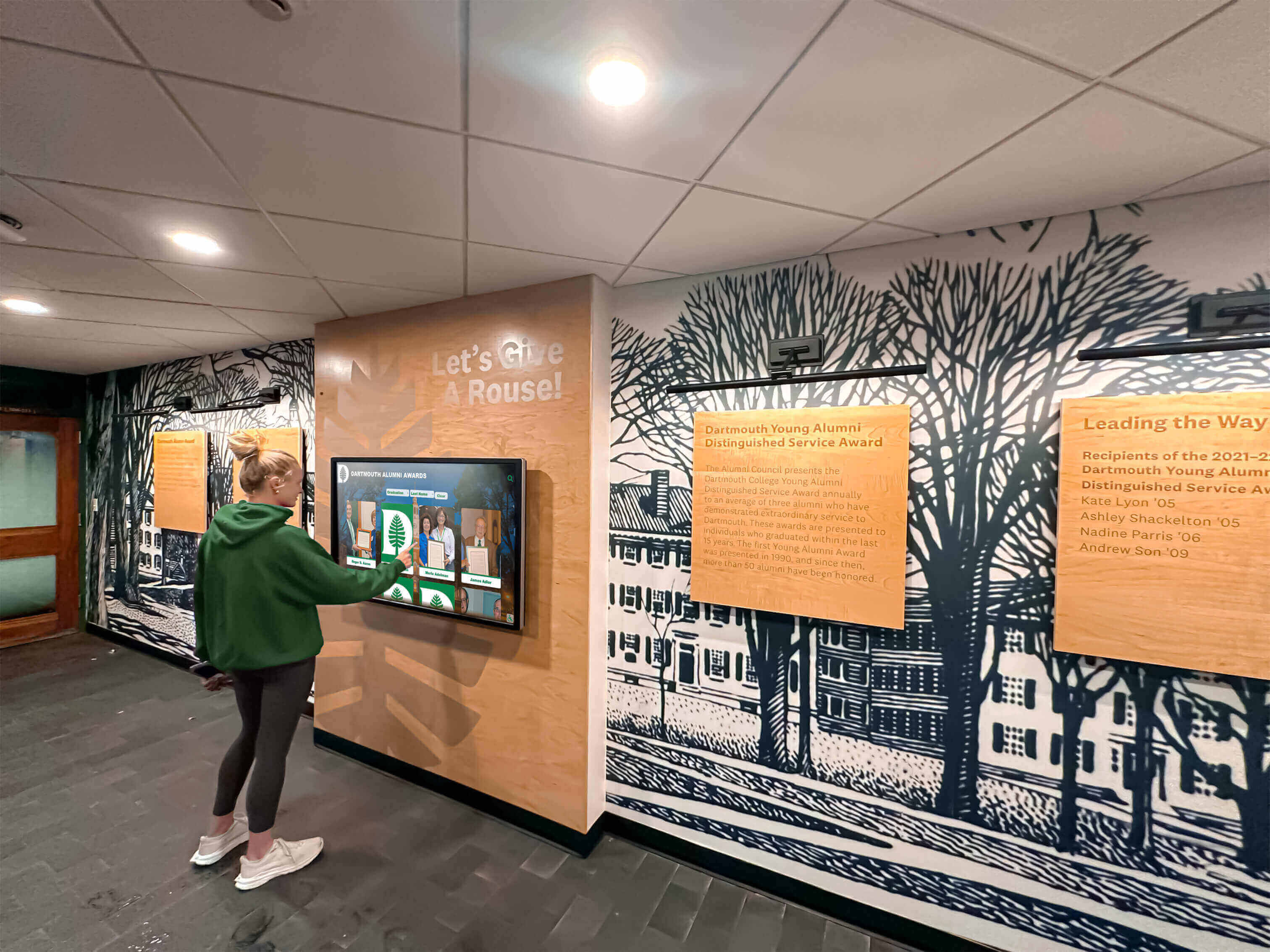
Digital recognition systems allow students to discover program history and legendary athletes who shaped their school's traditions
Gray Simons A dominant collegiate wrestler during the late 1960s and early 1970s, Simons brought his aggressive, technical style to Maple Lake as both camper and later instructor.
Don Behm Elite wrestler Behm both trained and instructed at the camp, representing the program’s philosophy of elite wrestlers giving back through teaching.
The Camp’s Multiplier Effect
Beyond individual greatness, the camp’s true impact came through how these elite wrestlers influenced others:
Peer Learning Youth wrestlers training alongside Olympic-level competitors witnessed firsthand what excellence required, creating aspirational standards impossible to achieve through words alone.
Technique Transmission Champions demonstrating and teaching techniques ensured rapid spread of effective wrestling innovations throughout American wrestling.
Culture of Excellence The camp created an environment where hard work, technical precision, and competitive intensity were normalized, influencing wrestlers who would become coaches themselves.
According to wrestling historians, many coaches who attended Houk’s camp as wrestlers later established their own programs using principles learned at Maple Lake, multiplying the camp’s influence across generations.
Training Philosophy and Methodology
Russ Houk’s Wrestling Camp distinguished itself through systematic approaches to wrestling education that balanced technical excellence with character development.
Technical Training Systems
Fundamental Emphasis Unlike programs that focused exclusively on advanced techniques, Houk’s camp stressed fundamental excellence:
- Proper stance and motion
- Basic takedown mechanics
- Positional control and breakdowns
- Escape and reversal fundamentals
- Pinning combination basics
This fundamental focus meant wrestlers at all levels improved, rather than advanced techniques being taught to wrestlers lacking proper foundations. Similar to how comprehensive athletic recognition programs acknowledge skill development, the camp celebrated technical mastery at all levels.
Progressive Skill Development The camp organized training progressively:
- Technique introduction and demonstration
- Deliberate practice with coaching feedback
- Situational drilling increasing resistance
- Live wrestling application
- Competition implementation
This progression ensured wrestlers didn’t just learn moves but could execute them under competitive pressure.

Modern digital displays provide comprehensive platforms for celebrating wrestling program achievements and honoring legendary coaches
Character and Mental Development
Work Ethic Cultivation The camp’s intensive training schedule taught lessons beyond technique:
- Discipline through demanding daily structure
- Perseverance through challenging training sessions
- Mental toughness through competitive pressure
- Commitment through sustained effort over camp duration
- Delayed gratification through focus on improvement rather than immediate results
Sportsmanship and Respect Houk emphasized wrestling’s character-building aspects:
- Respect for opponents and officials
- Grace in victory and defeat
- Team support and encouragement
- Mentor relationships between experienced and novice wrestlers
- Recognition that wrestling success required character as much as skill
These character emphases reflected Houk’s educational background and belief that wrestling camps should develop young people comprehensively, not just produce better wrestlers.
Individualized Attention Within Group Structure
Skill-Level Differentiation Despite mixed-ability groups, the camp provided appropriate instruction for each wrestler:
- Fundamental groups for newer wrestlers
- Intermediate groups for developing competitors
- Advanced groups for elite wrestlers
- Olympic-level training for international competitors
- Individual technique work for specific needs
Personal Coaching Relationships The camp’s structure enabled relationships between campers and elite wrestler instructors, creating mentorship impossible in typical settings. These relationships often continued beyond camp, with counselors tracking campers’ progress throughout the year.
The Decline and Legacy Following Houk’s Death
Russ Houk’s passing in 1988 marked the end of an era for the Maple Lake Wrestling Camp and created transitions throughout Pennsylvania wrestling.
Final Years and Closure
Following Houk’s death, the camp’s operations wound down. According to discussions among wrestling alumni, the camp’s unique character was closely tied to Houk’s personal leadership, relationships, and philosophy, making continuation challenging without him.
The Maple Lake facility eventually transitioned to other uses, though the site remains significant in wrestling history. Items like vintage camp t-shirts and memorabilia occasionally appear in collector markets, physical remnants of the camp’s decades of influence.
Preservation of Wrestling Camp Legacy
Schools and wrestling programs today face the question of how to preserve and honor their own historical programs and legendary coaches. Modern recognition solutions help address this challenge:
Digital Wrestling History Archives Solutions like Rocket Alumni Solutions enable wrestling programs to create comprehensive historical records that would be impossible with traditional static displays:
- Complete coaching biographies and career records
- Historical team photos and documentation
- Championship achievements across multiple decades
- Individual wrestler profiles and accomplishments
- Video integration showing historical matches and techniques
This digital preservation ensures programs like Houk’s don’t fade from memory but remain accessible to current and future wrestlers seeking to understand their sport’s heritage.
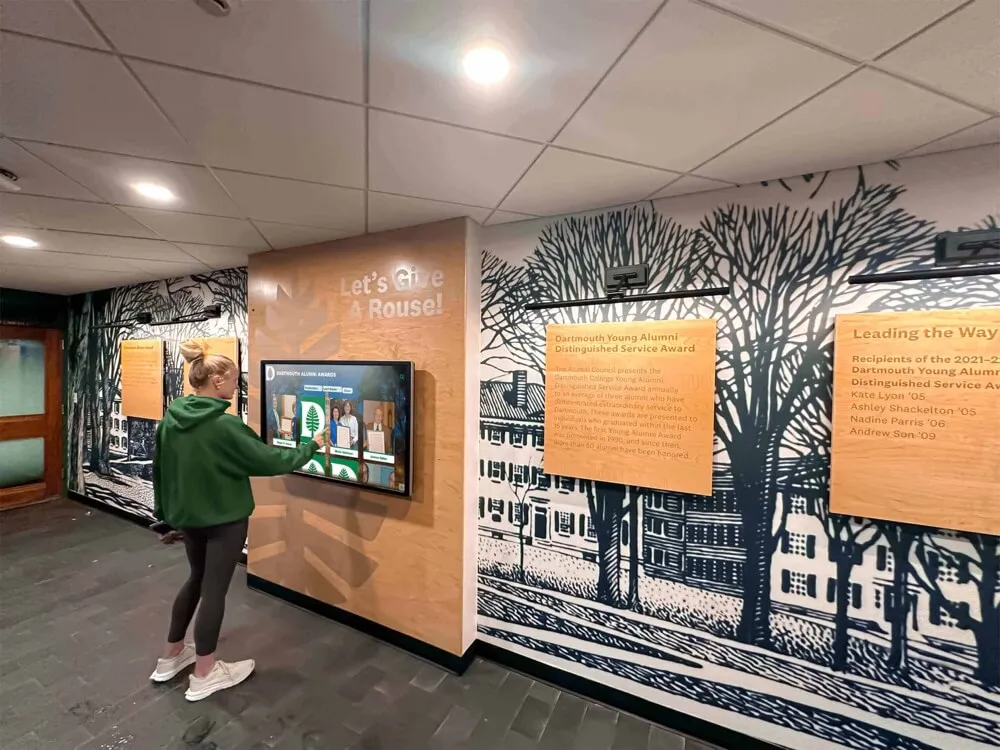
Interactive touchscreen displays enable comprehensive exploration of wrestling program history impossible with traditional recognition methods
Wrestling-Specific Recognition Features Modern digital displays can showcase wrestling achievements systematically:
- Weight class record holders across program history
- Tournament and dual meet records
- State qualifier and placer recognition
- All-conference and all-state selections
- College placement and scholarship recognition
- Coaching trees showing mentorship lineages
Learn more about comprehensive wrestling recognition approaches that honor program traditions.
Influence on Subsequent Wrestling Camp Development
Houk’s camp model influenced wrestling camp development nationwide:
Camp Structure Elements Subsequent camps adopted Houk-pioneered approaches:
- Multi-day intensive training formats
- Mixed skill-level participation
- Elite wrestler instruction and demonstration
- Comprehensive technique coverage
- Character development emphasis
- Competitive opportunities within camp structure
Geographic Spread Coaches who attended or worked at Houk’s camp established programs throughout America, spreading Maple Lake philosophies across regions. According to wrestling camp directories, numerous programs today trace philosophical lineage to Houk’s approach, even when camp organizers never directly experienced it.
Modern Wrestling Camp Standards Contemporary wrestling camps, whether focused on Olympic development like the U.S. Olympic Training Center programs or youth skill development, reflect principles Houk championed:
- Qualified, experienced coaching staff
- Progressive skill development
- Appropriate conditioning programs
- Safety and injury prevention
- Competition opportunities matching skill levels
- Educational components addressing strategy and mental preparation
Similar to how modern athletic recognition systems celebrate diverse achievements, today’s wrestling camps serve broader purposes beyond purely technical instruction.
The Broader Context: Wrestling Camps in Youth Sports Development
Understanding Russ Houk’s Wrestling Camp requires placing it within the broader evolution of specialized youth sports training.
Historical Development of Sports Camps
Early 20th Century Origins Specialized sports camps emerged gradually in American youth sports:
- Initial camps often focused on general athleticism and recreation
- Sport-specific camps developed as coaching specialization increased
- Elite athlete involvement elevated camp prestige and effectiveness
- Residential camp formats enabled intensive focus impossible in day programs
Houk’s 1962 camp establishment positioned it among the pioneering sport-specific programs, though wrestling camps would eventually become common.
Wrestling Camp Evolution and Proliferation
Growth Following Houk’s Model The decades following Maple Lake’s establishment saw wrestling camp proliferation:
According to wrestling camp directories, programs expanded from a handful of camps in the early 1960s to hundreds by the 1980s. Recent data suggests numerous high-quality wrestling camps operate nationwide, offering options from day camps for beginners to elite training for Olympic hopefuls.
Technological Integration Modern wrestling camps integrate technologies unavailable during Houk’s era:
- Video analysis of technique and performance
- Online registration and communication systems
- Digital technique libraries and instruction
- Virtual coaching and remote training programs
- Performance tracking and measurement systems
These technological advances extend camp learning beyond the session itself, though they supplement rather than replace the intensive in-person training Houk pioneered.
Youth Wrestling Recognition Challenges
Wrestling programs face unique recognition challenges that digital solutions address effectively:
Season-Long Achievement Tracking Wrestling’s weight-class structure and tournament format create complex achievement documentation needs:
- Individual records by weight class across seasons
- Tournament placement across multiple competitions
- Pin, technical fall, and decision statistics
- Dual meet contributions and records
- Career milestone tracking across weight classes
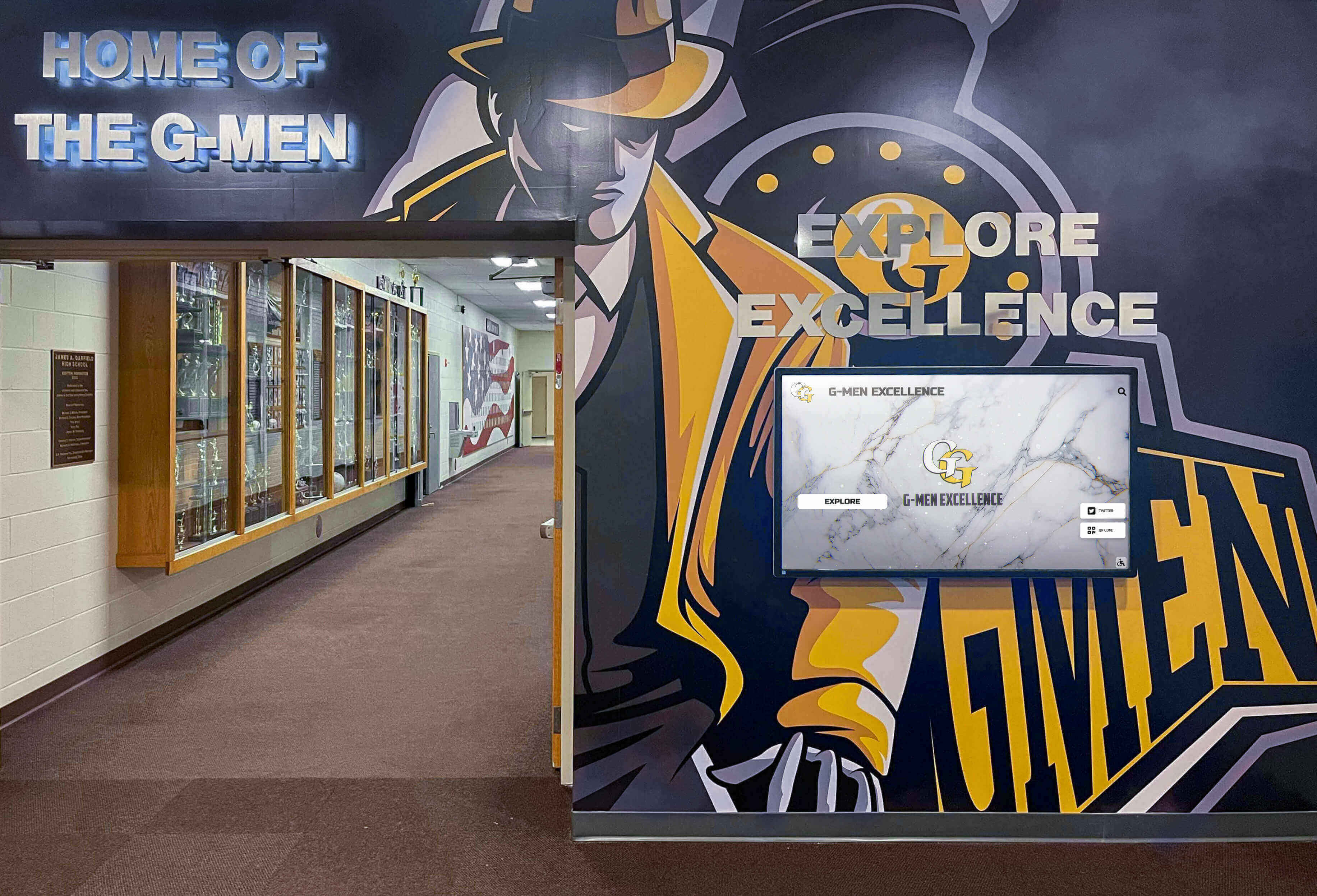
Integrated recognition systems combine digital displays with traditional elements for comprehensive wrestling program celebration
Space-Constrained Recognition Wrestling programs often face limited recognition space:
- Shared athletic facilities with multiple sport displays
- Numerous weight classes multiplying achievement categories
- Historical records spanning decades
- Individual and team achievement balance
- Multi-season wrestler career documentation
Digital recognition displays overcome these space constraints while ensuring all wrestling achievements receive appropriate visibility. Explore digital trophy case solutions that work particularly well for wrestling programs.
Implementing Wrestling Program Recognition Systems
Schools with strong wrestling traditions can honor their history through systematic recognition approaches that celebrate legendary coaches, championship teams, and individual excellence.
Comprehensive Wrestling Recognition Components
Coaching Legacy Documentation Programs should systematically document coaching contributions:
- Career records and championship achievements
- Wrestler development and college placement success
- Coaching philosophy and technique innovations
- Mentorship impact and coaching tree documentation
- Community contributions and program building
- National and state coaching honors received
For programs with coaches like Russ Houk whose impact extended beyond local competition, comprehensive digital profiles preserve their full legacy including Olympic involvement, camp operation, and influence on wrestling development.
Individual Wrestler Recognition Digital systems enable recognition impossible with limited physical space:
- Career statistics and achievement documentation
- Photo galleries tracking wrestler development
- Match highlight integration when available
- College placement and post-high school success
- Championship tournament performance documentation
- Weight class records and milestone achievements
Similar to comprehensive athletic recognition approaches, wrestling recognition should celebrate achievements across all skill levels and weight classes.

Touchscreen recognition kiosks provide intuitive interfaces for exploring wrestling program history and individual achievements
Team Championship Celebration Effective recognition preserves team success context:
- Season rosters with individual weight class assignments
- Dual meet records and tournament results
- Conference and state tournament performance
- Team photos and season documentation
- Key match descriptions and turning points
- Coaching staff recognition for championship seasons
Digital Wrestling Recognition Implementation
Content Collection Strategies Successful wrestling recognition requires systematic historical documentation:
Historical Research
- Yearbook and newspaper archive searches
- Alumni outreach for photos and documentation
- Athletic department record compilation
- Coach and family historical material gathering
- Community historical society partnerships
Ongoing Documentation Establish systems for current season documentation:
- Season-start roster compilation with photos
- Match photography and result recording
- Tournament performance documentation
- Milestone achievement tracking
- End-of-season recognition event coverage
Technology Selection Choose platforms appropriate for wrestling program needs:
- Search functionality enabling wrestler lookup across years
- Filtering by weight class, season, achievement type
- Statistical comparison tools showing records across eras
- Digital record board capabilities for weight class records
- Mobile accessibility for family and alumni viewing
Solutions like Rocket Alumni Solutions provide wrestling-specific templates and structures that simplify implementation while ensuring comprehensive achievement documentation.
Recognition Program Management
Sustainability Planning Wrestling recognition requires ongoing management:
- Assign clear content management responsibilities
- Train multiple staff members ensuring continuity
- Create documentation procedures for consistent updates
- Budget for platform subscriptions and technical support
- Plan for technology upgrades and system evolution
Stakeholder Engagement Effective recognition engages the wrestling community:
- Alumni wrestler involvement in historical documentation
- Former coach consultation on program history
- Parent volunteer assistance with current season documentation
- Student manager training in content creation
- Community partner recognition for program support
Modern Wrestling Camp Recognition and Alumni Connection
Wrestling camps create lasting bonds among participants and opportunities for ongoing recognition and engagement.
Camp Alumni Networks
Successful wrestling camps often maintain alumni connections:
Reunion Events Multi-year or milestone reunions bring former campers together:
- Significant anniversary celebrations (25th, 50th)
- Tribute events honoring camp founders and leaders
- Alumni wrestling exhibitions and competitions
- Storytelling sessions preserving camp history
- Mentorship connections between camp generations
Digital Alumni Communities Modern technology enables persistent camp community:
- Social media groups for camp alumni
- Online directories connecting former campers
- Digital recognition displays honoring camp attendance
- Virtual reunions and video conferencing connections
- Shared photo and video archives
Wrestling Camp Impact Recognition
Schools and programs can recognize wrestling camp participation and impact:
Camp Attendance Documentation Track and celebrate prestigious camp participation:
- Recognition for attendance at elite training camps
- Documentation of camp awards and achievements
- Integration with overall wrestler achievement profiles
- Connection between camp training and competitive success
- Special recognition for Olympic Training Center participants
Camp Legacy Preservation For historic camps like Houk’s, systematic preservation ensures legacy continuation:
- Digital archives documenting camp history
- Oral history projects with former campers and staff
- Historical photo and video digitization
- Educational materials teaching camp’s wrestling impact
- Recognition displays in relevant facilities and institutions
Similar to how programs honor legendary athletic programs and facilities, wrestling camps with significant historical impact deserve systematic recognition preserving their stories.
The National Wrestling Hall of Fame and Camp Recognition
The National Wrestling Hall of Fame in Stillwater, Oklahoma provides national-level recognition for wrestling’s most significant contributors, including those who shaped wrestling through camps and training programs.
Hall of Fame Structure and Recognition
According to the National Wrestling Hall of Fame, Russ Houk was inducted in recognition of his contributions to wrestling. The Hall of Fame features:
Physical Recognition Displays The John T. Vaughan Hall of Honors showcases iconic granite plaques honoring Distinguished Members since 1976, creating permanent recognition for wrestling’s greatest contributors.
Interactive Museum Exhibits Following a $3.8 million renovation in 2016, the Hall features interactive exhibits and electronic kiosks enabling visitors to explore wrestling history comprehensively. These modern recognition systems reflect the same principles schools can apply to wrestling program recognition—using technology to overcome space constraints while making history engaging and accessible.
Educational Programming The Hall of Fame provides educational resources helping wrestling communities understand and honor their sport’s history, similar to how comprehensive recognition programs educate communities about local achievements and traditions.
High School Wrestling Excellence Awards
The Hall of Fame administers recognition programs that schools should integrate with local recognition systems:
Dave Schultz High School Excellence Award (DSHSEA) According to USA Wrestling, this award recognizes outstanding high school senior male wrestlers for excellence in wrestling, scholastic achievement, citizenship, and community service. State and regional winners receive national recognition.
Tricia Saunders High School Excellence Award (TSHSEA) This parallel award recognizes outstanding high school senior female wrestlers across the same comprehensive criteria, reflecting wrestling’s growth as a sport for all genders.
Schools should prominently celebrate students receiving these national honors through multiple recognition channels, connecting local programs to national wrestling excellence standards.
Conclusion: Preserving Wrestling Heritage While Building Future Excellence
Russ Houk’s Wrestling Camp at Maple Lake represents a remarkable chapter in American wrestling history—a pioneering program that shaped Olympic champions, influenced coaching methodologies nationwide, and demonstrated how intensive, character-focused training could transform wrestlers at all levels. From its establishment in 1962 through Houk’s passing in 1988, the camp served as both Olympic training center and youth development program, creating a legacy that extends through the careers of wrestlers and coaches it influenced across generations.
The camp’s history offers important lessons for contemporary wrestling programs. Excellence emerges from comprehensive approaches that emphasize fundamental technique, character development, and exposure to elite competition. Legendary programs result from visionary leadership willing to innovate and persistent dedication to wrestler development. And lasting impact requires systematic recognition and preservation ensuring current and future wrestlers understand their sport’s heritage and the shoulders on which they stand.
Preserve Your Wrestling Program's Legacy
Discover how interactive digital recognition displays can help you honor legendary coaches, celebrate championship teams, and preserve your wrestling program's complete history for future generations.
Explore Recognition SolutionsModern recognition technology enables wrestling programs to preserve their histories comprehensively while making that history accessible and engaging. Digital platforms overcome the space constraints that force programs to choose which achievements receive visibility, enabling recognition of legendary coaches like Russ Houk alongside current season accomplishments. Interactive displays transform static recognition into exploration opportunities where wrestlers discover program traditions and connect with the excellence standards those traditions represent.
For wrestling programs with rich histories, systematic recognition serves multiple purposes: it honors past contributions deserving celebration, educates current wrestlers about program traditions and expectations, motivates continued excellence by highlighting what’s possible, and strengthens community connections by demonstrating wrestling’s ongoing impact. When recognition systems integrate historical documentation with current achievements, they create living archives that grow more valuable over time.
Building effective wrestling recognition begins with documenting what you have—gathering historical photos, compiling records, interviewing alumni and retired coaches, and organizing existing materials. From this foundation, programs can implement recognition systems starting with essential components then expanding systematically. Solutions like Rocket Alumni Solutions simplify this process through wrestling-specific templates and guidance that accelerate implementation.
Your wrestling program’s history includes stories worth preserving—coaches who shaped lives beyond the mat, wrestlers who achieved excellence through dedication, teams that embodied your community’s values, and traditions connecting generations. Whether your program traces inspiration to legendary camps like Russ Houk’s or built excellence through its own unique path, systematic recognition ensures those stories survive and continue inspiring wrestlers for generations to come.
Ready to honor your wrestling program’s legacy? Explore athletic hall of fame creation approaches or learn about comprehensive sports recognition systems that celebrate wrestling excellence alongside other athletic achievements.




































